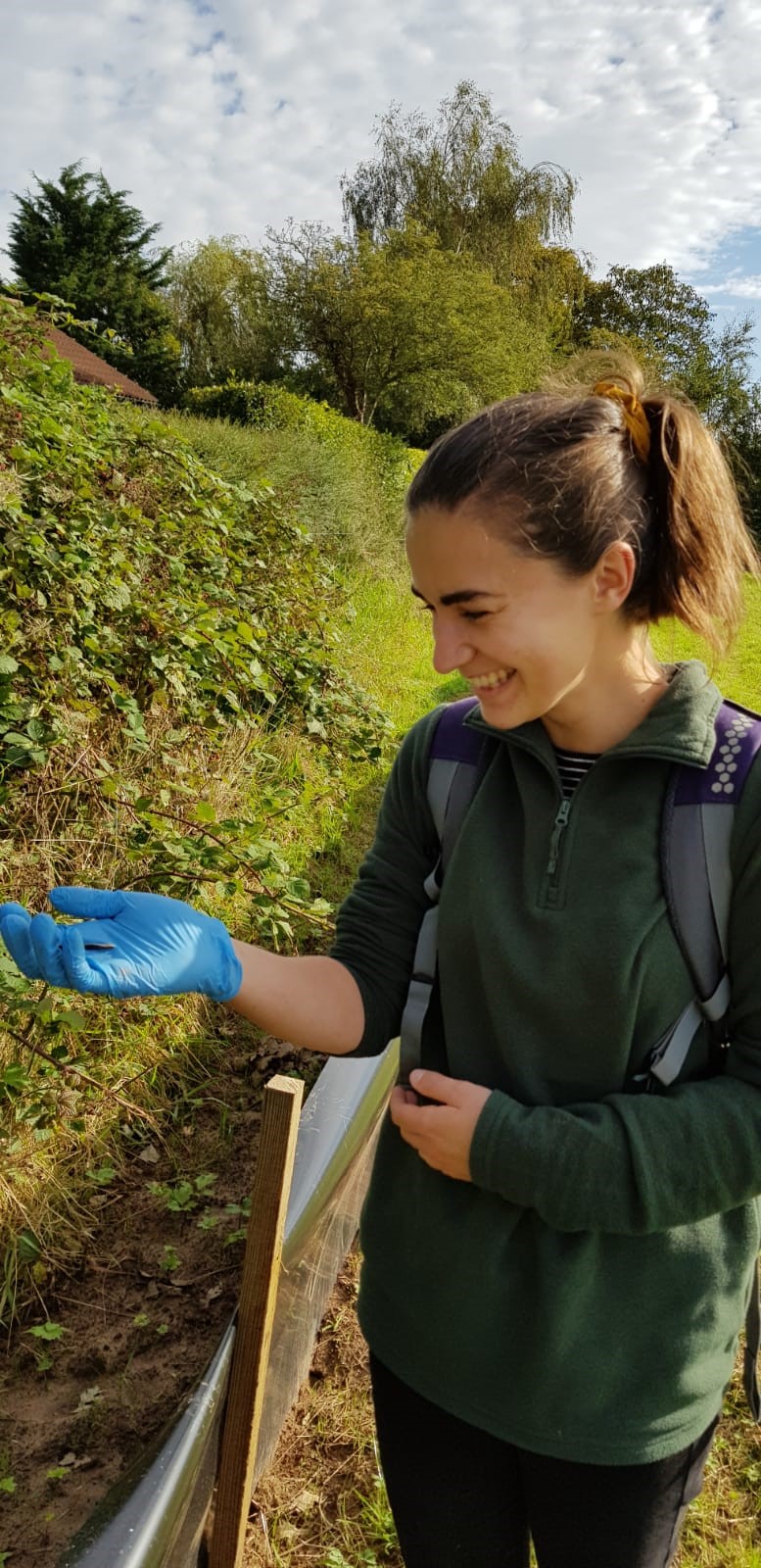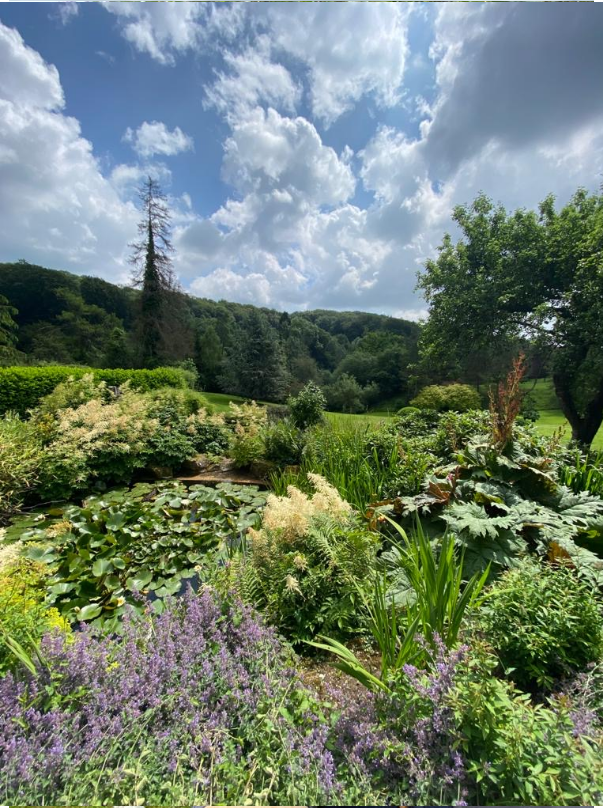A Day in the Life of an ecologist
13 Sep 2021
13 Sep 2021
If you think ecology is all about putting on a pair of wellies, hiding in a bush and doing a David Attenborough impression as you observe nature, you’re …. actually not that far from the truth.
But we can offer you more insight than that. In fact, our very own assistant ecologist, Lucy Mason, is about to share what it’s like to pursue a career in ecology.
Discover how she (literally) got into the field, what a typical working week looks like and her top tips for a budding ecologist.

“I’ve always been a bit obsessed with nature, taking up every opportunity to work with animals and the environment.
“Before university, I built up my experience volunteering in animal care for the RSPCA. I’ve also worked as a Learning Ranger Volunteer for the Wild Place Project and a Land Management Volunteer at Stoke Park Restoration Group.
“When I finished college, I decided to do a wildlife ecology and conservation science degree. I studied at the University of the West of England and graduated in July, 2020.
“I finished university in the heart of lockdown, and there were zero ecology jobs being advertised. But I was determined to get some work experience.
“I got on LinkedIn and messaged a few ecology consultants to see if they would let me shadow them on surveys.
“Tyler Grange was the only consultancy to get back to me! They wanted me to help out over the summer. I worked as an assistant on bat surveys, dormouse checks, preliminary tree assessments, water vole and otter surveys – all kinds of things! The team was really enthusiastic and super keen to help me learn.
“After my work experience ended, Tyler Grange asked if I wanted to do ad hoc survey work, like a subcontractor. At the end of summer, they offered me a full time position as an assistant ecologist for the next season. I said no … just kidding! It was an instant YES.”
“I couldn’t describe any week as ‘typical’ – the work is so varied. But generally, you can expect to spend two or three days a week doing survey checks. The type of surveys you do change with the season.
“For example, April to September is bat season. You’ll either be in the field before sunrise or after sunset, which is always exciting! You might also do Great Crested Newt (GCN) surveys in the morning or evening too.
“While daytime field work includes Phase 1 surveys (initial site visits to map the habitats or look for potential protected species). You might also do reptile surveys or trips to collect equipment from the site. It really depends on the season and when you start work. There are also micro seasons to look out for – you do a lot of weather watching as an ecologist!
“And then there’s desk work. You’ll be trained up in a wide variety of office-based tasks, such as researching sites, completing data searches and mapping using GIS software. It’s really interesting; it helps you realise why you’re doing the surveys, which gets you more invested in field work.”

“We’re never not having a good time out on surveys. Everyone on the team is so friendly, it often feels like you’re just hanging out with friends.
“I was licked by a cow once, which was pretty memorable … on another survey, I got to see lesser horseshoe bats for the first time. I was in charge of counting, and they just kept coming! I think I counted over 70. Nobody was expecting to see that many.
“One of my favourite memories is when we did a great crested newt (GCN) survey earlier in the season. We went to check up on a pond after dark, and saw that the newts had been using the materials we’d provided to lay their eggs. Seeing our work being used like that, it was really special.”
“In a way, yes. I think that’s mainly because the course I did at university was very conservation-focused. It didn’t teach me much about ecology, but I did gain core skills that have been invaluable to my work at Tyler Grange.
“I did have this notion that I’d only be doing surveys as an ecologist. When really, there are many other elements to it – it’s super varied. Tyler Grange has been especially good at getting me involved in all aspects of ecology. I’m doing tasks I never thought I would do at my level, the learning has been so rapid.”

“My whole journey with Tyler Grange started with an email in the middle of a global pandemic, asking for some work experience. And now I’m working full-time as an assistant ecologist. Don’t be afraid to put yourself out there! There are lots of opportunities for work experience. Be brave and ask around.
“Another important thing: don’t ever feel like you’re not qualified enough. So much of what you learn takes place on the job. Just be enthusiastic and attentive. Prepare to socialise a lot too! You’ll spend a lot of time working as a team. Be yourself and be personable; you’ll develop friendships that enrich the work you do.
“One thing that has helped me progress quickly is focusing more on the world around me. I can’t pass a tree or insect without trying to ID it now. This is a great way to develop your ID skillset – a crucial skill for any ecologist.”
If ecology sounds like your kind of jam, why not check out our open vacancies here?
We’re often on the lookout for fresh talent. You can email us on hello@tylergrange.co.uk, DM us on Twitter or apply directly via LinkedIn.
We can’t wait to hear from you!